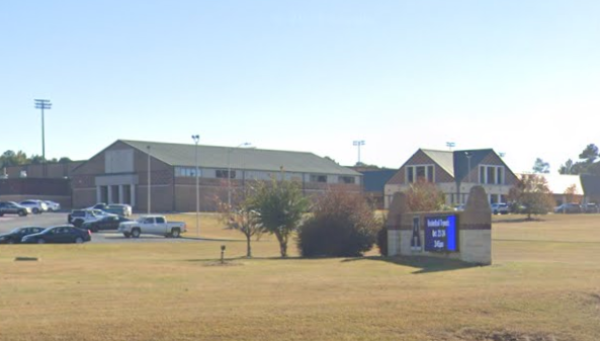
A devastating shooting unfolded at Apalachee High School in Winder, Barrow County, on Wednesday morning, September 4, 2024, resulting in the loss of two teachers and two students. The Georgia Bureau of Investigation (GBI) confirmed that four individuals were killed and nine others sustained injuries during this tragic incident, according to Fox 5 Atlanta.
During a press conference, the GBI revealed critical details about the shooting. The Barrow County Sheriff's Office began receiving emergency calls around 10:20 a.m. Officers arrived swiftly and encountered the alleged shooter, Colt Gray, a 14-year-old student at the school, who surrendered without resistance.
The FBI disclosed the suspect's identity, confirming the minor was a student at the school. The GBI has yet to release the names of the deceased or provide further information about the victims involved in the shooting.
The incident has left the community reeling. Apalachee High School, which serves approximately 1,900 students, is one of two high schools in the Barrow County Public Schools district, located about 40 miles northeast of Atlanta. The school community is now grappling with the aftermath of this heartbreaking event.
UPDATE September 10, 2024 - In the aftermath of the tragic shooting at Apalachee High School, new information has surfaced regarding the events leading up to the incident. The mother of the alleged gunman, Colt Gray, reportedly warned school officials of an “extreme emergency” involving her son just before the shooting occurred. Text messages obtained by The Washington Post reveal that Marcee Gray called the school at 9:50 a.m., approximately 30 minutes before witnesses reported the gunfire.
In a message sent to her sister after the shooting, Gray stated, “I told them it was an extreme emergency and for them to go immediately and find [my son] to check on him.” According to family accounts, a school counselor informed Gray during the call that her son had been discussing a school shooting that very morning. This alarming context raises questions about the school’s response to the warning.
Around the same time as the warning call, a school administrator attempted to locate Gray in his math classroom. Student Lyela Sayarath noted that there was confusion regarding another student with a similar name, leading the official to leave with the wrong backpack just minutes before the shooting began. This sequence of events suggests that the school may have been alerted to potential risks concerning the suspect.
The text messages also indicate that the school and family had been in communication about the teen's mental health issues the week prior. Annie Brown, a family member, mentioned that Colt had expressed “homicidal and suicidal thoughts.” Reports reveal that he had been pleading for mental health assistance for months, highlighting a failure to address his needs effectively.
Colt Gray’s background is marked by turmoil. His mother pleaded guilty to family violence charges last December, and the family faced eviction in 2022. Additionally, they had interactions with Georgia’s child welfare agency. Local law enforcement had previously contacted Colt after receiving a tip about online threats to carry out a school shooting, although he denied making such threats.
Law enforcement had previously interviewed Colt Gray following anonymous reports of online threats made against a school. According to the local FBI office, the investigation stemmed from a tip indicating that Gray, then 13, had allegedly threatened to "shoot up a middle school" on Discord, a platform popular among gamers. Authorities found insufficient evidence to take further action after Gray denied making any threats. His father was said to have responded “he knows the seriousness of weapons and what they can do, and how to use them and not use them.” The investigation revealed inconsistencies in the information linked to his Discord account, including profile details in Russian and activity traced to various locations, complicating the case. Ultimately, no arrests were made, leaving questions about the effectiveness of the response to the reported threats.
Colt Gray is now charged as an adult with four counts of felony murder and appeared in court but did not enter a plea. His father, Colin Gray, faces charges of second-degree murder and involuntary manslaughter, accused of allowing his son access to the weapon used in the shooting. As the investigation continues, the community seeks answers and accountability for this tragic event.

In the aftermath of the tragic shooting at Apalachee High School, many families are left grappling with loss and uncertainty. To help navigate this difficult situation, we spoke with John Bey, an experienced attorney specializing in victims’ rights. He shared vital information on the legal options available for those affected by school shootings and discussed how to hold negligent parties accountable.
Editor Darla Medina: Thank you for joining us. Given the recent tragedy at Apalachee High School, what legal rights do victims and their families have in these situations?
Attorney John Bey: Victims and families affected by mass shootings at schools have several rights, including the right to seek compensation for medical expenses, emotional distress, and loss of income. If negligence can be proven, they may also hold responsible parties accountable.
Medina: What types of negligence might be involved in a school shooting case?
Bey: Common areas include inadequate security measures, failure to implement safety protocols, and insufficient mental health support. If a school knew about threats but didn’t act, that could be a significant factor.
Medina: How can victims begin the process of holding these parties accountable?
Bey: The first step is to document everything—medical records, witness statements, and any communication with the school. Consulting with a legal professional experienced in these cases is vital to navigate the complexities involved.
Medina: What should families know about the timeline for legal action?
Bey: Each state has a statute of limitations, which is the time limit for filing a claim. In Georgia, it’s typically two years from the incident. However, early action is advisable to gather evidence effectively.
Medina: Thank you, for sharing your knowledge during such a difficult time. Your insights will be invaluable for those affected.
If you or a loved one has been affected by the recent tragedy at Apalachee High School, know that you are not alone. Our dedicated team is here to support you through this challenging time. We offer free consultations to help you understand your legal rights and options. Don’t hesitate to contact us for the guidance and assistance you need.
 info@legalherald.com
info@legalherald.com